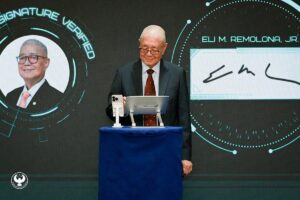
Urgent Need for Modern Mass Transit Systems
Senate Deputy Majority Leader Joseph Victor “JV” Ejercito is championing rail-based solutions as a critical strategy to tackle the escalating urban traffic problems in the Philippines. As the chair of the Senate Committee on Urban Planning, Housing, and Urban Development, Ejercito has emphasized the necessity of developing an advanced mass transit system to alleviate the severe congestion plaguing the roads of major metropolitan areas.
Rising Vehicle Numbers and Congestion
In a recent radio interview, Ejercito highlighted alarming statistics, noting that approximately 300,000 additional vehicles enter Philippine roads each year. This surge means that within three years, there will be an additional one million new vehicles, intensifying the already dire traffic situation.
The senator expressed deep concern that the country’s transportation infrastructure significantly lags behind its ASEAN neighbors. He pointed out, “Indonesia, Malaysia, and Thailand are 30 years ahead of us,” underscoring the urgent need for modernization, especially through rail-based solutions.
Key Railway Projects: NSCR and MMSP
Ejercito emphasized the importance of major railway projects such as the North South Commuter Railway (NSCR) and the Metro Manila Subway Project (MMSP) in addressing these issues. These projects are pivotal to transforming the transportation landscape in the Philippines.
North South Commuter Railway (NSCR)
The NSCR is a 147-kilometer railway system that will connect Calamba City in the south to New Clark City in the north, passing through several Metro Manila stations via the existing Philippine National Railways (PNR) line. This ambitious project includes an Airport Express service with high-speed trains to New Clark International Airport. Funded by the Japan International Cooperation Program (JICA) and the Asian Development Bank (ADB), the construction of the NSCR has already begun in Metro Manila, following the suspension of PNR train operations from Valenzuela to Alabang.
Metro Manila Subway Project (MMSP)
The MMSP, an underground railway system, will stretch from Parañaque in the south to Valenzuela in the north, with a spur line extending to Ninoy Aquino International Airport Terminal 3. This project aims to offer a modern, efficient alternative to road travel, significantly reducing travel times across Metro Manila.
Economic Growth and Infrastructure Development
Ejercito highlighted that these rail-based solutions are expected to stimulate economic growth by creating jobs and improving the transport of agricultural products. He envisions the NSCR and MMSP as crucial in spreading development to rural areas and fostering economic growth beyond Metro Manila and other major urban centers.
Protecting the budget for these projects is essential, Ejercito noted, as they often face cuts during the legislative process. “We must keep pushing for this solution if we are to catch up with the rest of the ASEAN and untangle the daily gridlock in our urban centers,” he said.
Comprehensive Infrastructure Development Master Plan
To further this cause, Ejercito has introduced Senate Bill 158, which aims to establish a Comprehensive Infrastructure Development Master Plan. This legislative framework is designed to ensure the continuity of high-quality, integrated infrastructure projects despite changes in administration.
“A master plan will harmonize the government’s competing infrastructure priorities and guarantee that major programs continue seamlessly,” Ejercito explained. The proposed master plan would coordinate various infrastructure projects, ensuring they are not disrupted by political changes and providing a clear roadmap for sustainable development.
Conclusion: A Vision for Modernized Transportation
Senator JV Ejercito’s advocacy for rail-based solutions reflects a broader vision for modernizing the Philippines’ transportation infrastructure. By focusing on comprehensive and sustainable mass transit systems like the NSCR and MMSP, the country can address its chronic traffic problems and pave the way for economic growth and development. These efforts are critical for improving the quality of life for Filipinos and enhancing the nation’s competitiveness in the region.





















Comments are closed for this article!